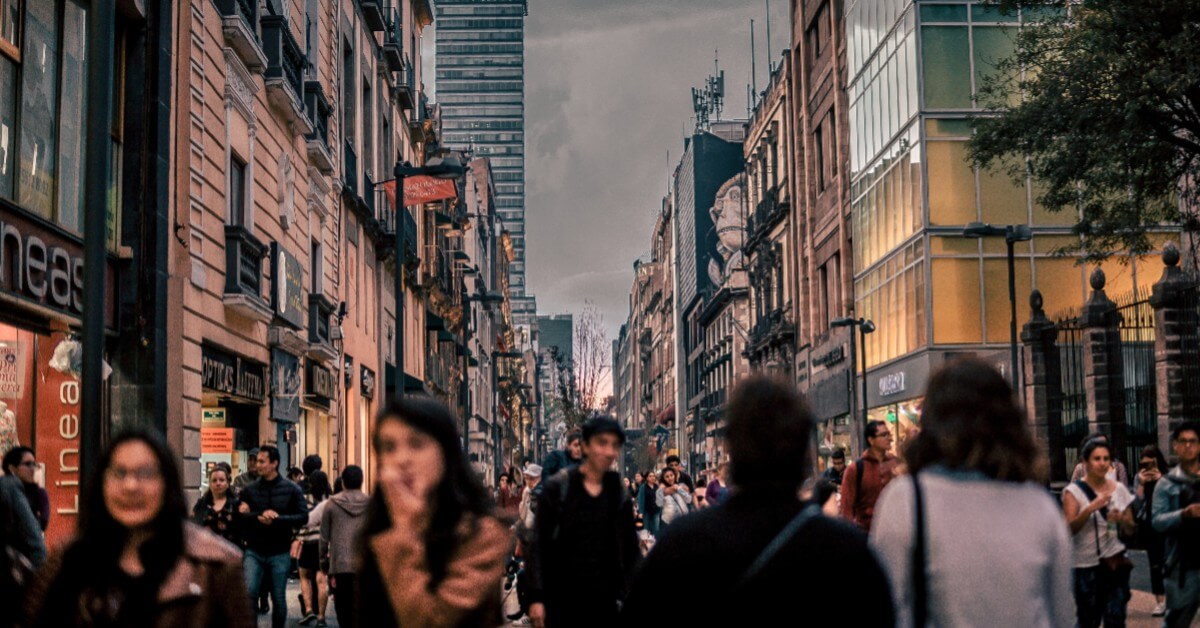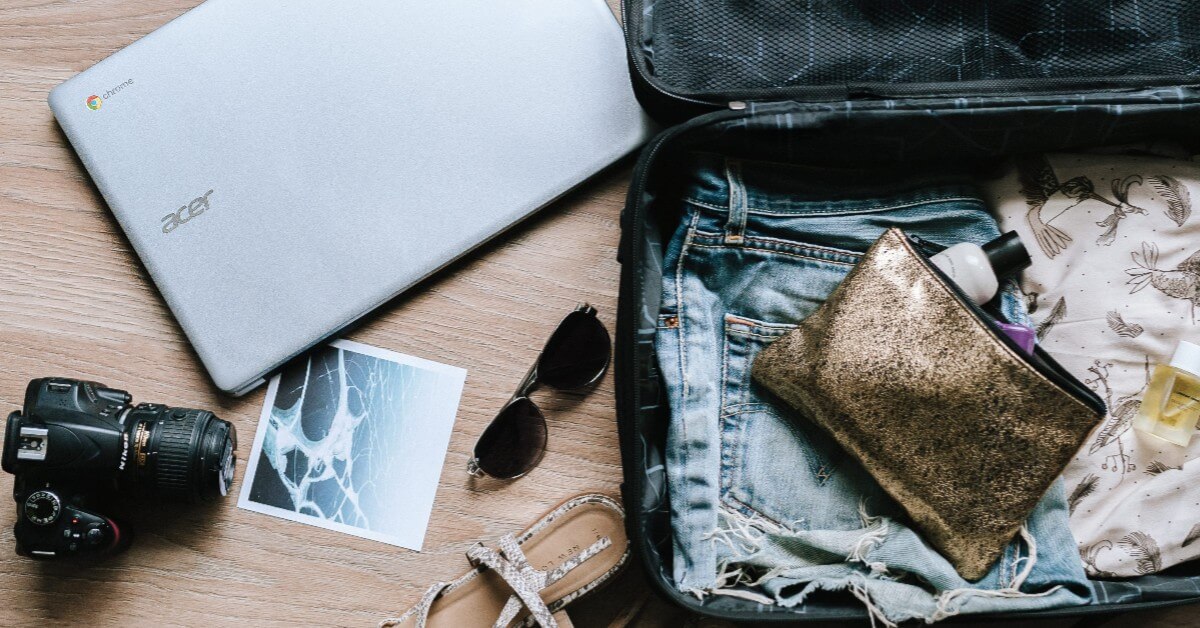When you travel, you travel with a set budget. Whether that’s on a card or cash varies, but one fact remains — you want to keep it safe. If you’re not a local, then it’s likely you’ll stand out when you check your phone for a map, walk with a focus on road signs, or if you have any kind of “I love [insert your choice of city here]” t-shirt. And that means you are a target for anyone looking to swipe a bunch of money in one go. While we can’t make you look like less of a tourist, we can help you keep your money safe with these tips and tricks.
How Pickpocketing Works
In order to understand the risks, it’s important to understand what that risk is. That’s why we want to talk briefly about what pickpockets do, how they do it, and how they choose to mark someone based on collected data from law enforcement and other travelers.
Pickpocketing is stealing from someone else, typically without them noticing. If the individual notices, we tend to call that a mugging, but pickpockets pick your pockets without you noticing it happened. They target tourists because tourists tend to carry more money on them than locals, meaning there’s a high-risk reward for them to do this. Pickpockets take advantage of crowds, tight locations, misdirection, and sometimes even their own groups to distract their targets and steal whatever they’re aiming for.
When a pickpocket decides to mark someone as a target, they have to weigh the risk and reward. Normally, pickpockets are going to go for the lowest-risk person in the room, which means the more you do to make yourself a difficult target, the less likely they’ll risk getting caught in the act of taking your belongings.
Don’t let appearances fool you. Most pickpockets are nicely dressed and act like friendly locals. They often offer help while a friend of theirs sneaks over to take your purse. Like we said, pickpocketing works best with misdirection. If you’re focused on something else, you’re less likely to notice a second person swoop in a take your bag.
Avoid Bulky Bags
Pickpockets pride themselves on being able to swipe wallets without the owner noticing. Purses and big bags only make this more likely. You’ll be less likely to notice a pickpocket happening if they’re pulling something out of a bag compared if they’re trying to pull it out of your front pocket. The closer to your person you can keep something, the less likely a pickpocket will risk trying to get to your wallet.
This can even escalate to people cutting your bags. Most people pack in their important documents and wallets in one side of their bag, which pickpockets will cut into to swipe your belongings without you noticing, some of them even going as far as cutting the straps altogether to stake the whole thing. You can support your bag with metal wires, but generally, it’s safer to pack things closer to your person.
To keep these even safer is to take advantage of safes into your hotel. If you don’t need your passport, wallet, jewelry, etc. that day while you’re out, then lock it up in your safe and leave it in the hotel. The less you carry on your person, the less likely you’ll be marked as a target to snatch a wallet from.
Be Alert In Tight Areas
Pickpockets aren’t only passing people by on the sidewalk. They’re on trains, subways, and waiting in lines to take advantage of close proximity. Always be safe and keep your money close to your person, but don’t think you’re safe because a lot of people are watching. That’s usually where you’re likely to have your wallet stolen. Be aware of your surroundings, and avoid bumping into people or keeping your back to a space if you can.
If you need to take a nap while traveling, make sure either you’re traveling with someone else will be awake while you rest, or return to your hotel. A nap on the subway may seem like a good idea right now, but it won’t be great when you wake up missing something from your pocket.
Avoid sitting near doors on public transit. Pickpockets will swipe your wallet and then step out at the next stop as the door is closing, leaving you unable to catch them. Sit or stand towards the middle of the car you’re in and keep an eye on your belongings as you travel.
Go To A Bank
If you need to exchange currency or get more cash, naturally you’ll head to an ATM. But before you walk up to any ATM, check and see if you can find a local bank or official exchange location. Public ATMs may be convenient, but they’re often not protected. It’s safer to swing by a bank, which will have security. While you will pay to exchange currency, it’s safer to pay a little extra than to risk losing it all.
If you have to go by an ATM, make sure it’s in a well-lit area with some kind of security nearby. Better yet, take someone with you to watch your back while you process the exchange. Like we said before: remain alert and be careful.
Travel In Groups
Traveling as a group is always a safer option. When you travel in groups you become a collection of people instead of a single individual. While being alone in a crowded space can make you an easier target, being in a group means you have a collection of people all sharing their awareness of the situation. For a pickpocket to target any one individual in a group means having to navigate around everyone else in the group too. It becomes a bigger risk for them to get caught and they’ll move on to someone else.
Keep A Record
Before you leave, have a record on how much money you have, and then keep a tally of how much money you’ve spent as your trip progresses. If you do get robbed and haven’t noticed, this will help you pinpoint when and where it happened. As soon as you know your card was stolen, deactivate that account. Even if you’re out of the country, those international minutes will be worth it when compare to the amount a pickpocket can spend.
Have a Wallet Chain
There are a number of options to make your belongings more secure, including wallet chains and other security accessories. If you have to carry around a purse while you travel, add a metal wire to support the bag and to prevent someone from cutting the strap. There are more and more bags that feature hidden zippers that are tucked away to prevent theft, as well as GPS trackers that can be dropped into your bags to help law enforcement find your belongings if it’s stolen.
Keep Your Hands On Your Belongings
Never put your bags down in a public space, or trust them with anyone other than a uniformed employee or member of law enforcement. Pickpockets regularly use tricks that involve getting something off of your shirt or encourage you to set down your bag, when their partner is waiting to take it when you’re looking away.
Some of these tactics involve approaching you while you’re in a restaurant or cafe. Keep your coats and bags in your lap, not behind you where you can’t see them. It may be comfortable to have your jacket behind you, but the pockets inside aren’t being watched, meaning they’re a target for would-be thieves.
In summary, remember to always be alert when you’re traveling. We don’t want you to be paranoid about the worst happening, but always do your best to avoid it. Being robbed is never your fault, but you can minimize the chances of it happening by making sure you’re vigilant of your surroundings and by not falling for any tricks that would leave you broke in a foreign country.
Just like being pickpocketed on a trip isn’t any fun, coming home to an surprise with your car is even less so. Skip the hassle of worrying about airport parking and park with ParkDIA. Our lot is monitored 24 hours a day and we guarantee the safety of your vehicle while you’re traveling abroad. Reserve your spot today and worry less about your trip.




